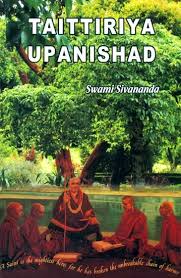

In the sixth chapter of the Chhandogya Upanishad, we find a dialogue between a sage and his son, Shvetaketu. What is their central message to us? You Are Pure Existence Let us go straight into the heart of the Upanishads. For example in the Mundaka Upanishad, the enquirer, Shaunaka asks the sage Angiras, ‘Sir, what is that, which becoming known, everything here becomes known?’ In the Katha Upanishad, a little boy, Nachiketa asks about what, if anything, survives death-and he asks this to none other than Yama, Lord of Death! Often these Upanishads are in the form of dialogues between sages and truth-seekers. ‘Isha-Kena-Katha-Prashna Munda-Mandukya TittirihĪitereyam cha Chhandogyam Brhadaryankam tatha’ There is a traditional shloka which lists these major Upanishads: We hear of 108 Upanishads, ten of which are especially important because they were selected for commentary by Adi Shankaracharya. ‘The essence of the knowledge of the Vedas was called by the name of Vedanta, which comprises the Upanishads.’ The Upanishads are also the end or culmination of the Vedas in the sense that they embody the highest philosophical knowledge of the Vedas. Literally, Vedanta means ‘end of the Vedas’ and indeed, many of these texts are found at the end of each of the four Vedas. The Vedantic world-view permeates all aspects of Indian culture and way of thinking. The Upanishads are collectively called the Vedanta. Only the pure in heart see God.The Vedas are the core scriptures of Hinduism and the Upanishads are texts which form the philosophical essence of the Vedas. As soon as the mud is washed away, the magnet attracts the needle, that is to say, man realizes God. Tears wash away the mud, which is nothing but lust, anger, greed, and other evil tendencies, and the inclination to worldly enjoyments as well.
TAITTIRIYA UPANISHAD ABOUT HAPPINESS FREE
The needle cannot be united with the magnet unless it is free from mud. Sri Ramakrishna explains the need for purity of mind: "The mind is like a needle covered with mud, and God is like a magnet. Desires make it difficult to think of God or give an inward turn to the mind. The mind is naturally inclined to focus on sense objects. On the other hand, when you are in the company of devotees, you will think and talk only of God." Why Doesn't the Mind Turn Inward? They will take only the colour you dip them in, whatever it may be.If you are in bad company, then you will talk and think like your companions.

If you dip them in blue or green, they will be blue or green. If you dip them in red dye, they will be red. It is like white clothes just returned from the laundry. The mind will take the color you dye it with. Says Sri Ramakrishna: "Bondage and liberation are of the mind alone. An uncontrolled mind, on the other hand, is our enemy and acts against our interests. The Bhagavad Gita teaches that a controlled mind acts as our friend and helps us to live a moral and spiritual life. Our mental condition determines our character and the quality of our life. Our thoughts are responsible for our actions. The more we think of God, the more we grow in purity. The ease with which divine thoughts arise in the mind indicates how pure the mind really is.

That which is Pure Mind is also Pure Buddhi that, again, is Pure Ātman, because there is nothing pure but God." Whatever appears in the Pure Mind is the voice of God. Says Sri Ramakrishna: "God is realized as soon as the mind becomes free from attachment. In that state of divine absorption the mind ceases to be the mind: it becomes one with God. Purity of mind indicates a mind that has become one with divinity. Who could breathe, who could live, if that Bliss did not exist in his heart?" (2.7.1) A man experiences happiness by tasting that Bliss. The Taittiriya Upanishad says: "He who is self-created is Bliss. However, the Upanishads teach us that eternal bliss and true fulfillment is possible only in the Infinite, in God. False identification with body and mind accounts for our selfishness, our misdirected search for lasting happiness among fleeting objects of the senses. It is the greatest obstacle in spiritual life. This mistaken notion is the main impurity that creates all other impurities in the mind. Though we are essentially divine, we mistakenly think we are no more than body and mind. Purity of mind is another important divine quality extolled in the Bhagavad Gita. Divine Qualities (Part 14) Purity of Mind


 0 kommentar(er)
0 kommentar(er)
